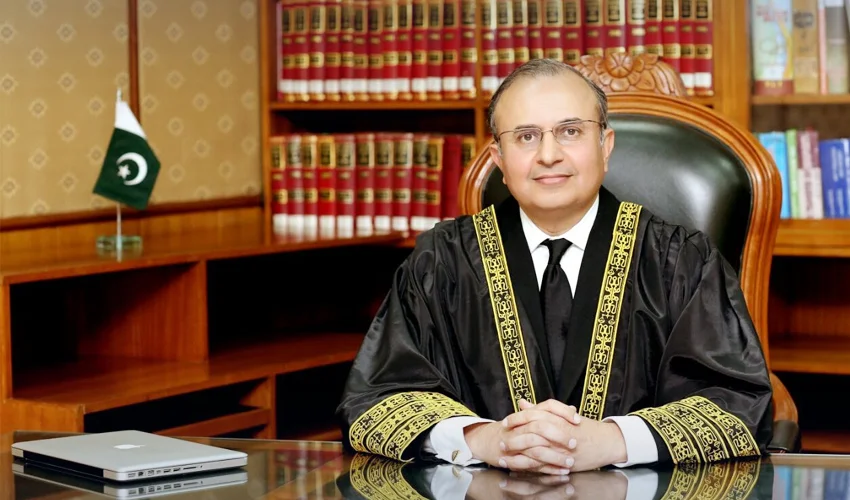Supreme Court (SC) Justice Mansoor Ali Shah on Friday addressed concerns about a potential reference against two senior judges, responding to statements made by Prime Minister’s Advisor Rana Sanaullah. His remarks came amid growing speculation about judicial accountability and transparency in Pakistan’s legal system.
During an informal discussion with journalists, Justice Shah was questioned about the judiciary’s performance and efficiency. When asked about claims that judges do not work efficiently, he dismissed such allegations by highlighting the court’s case disposal rate and the number of judgments recorded in law books. He further emphasized that all judicial records, including verdicts and case progress details, are publicly available on the Supreme Court’s official website.
Addressing speculation about a possible reference against him, Justice Shah stated, “We will deal with it when the time comes. If I have done nothing wrong, why should I be concerned? Ultimately, God is the supreme judge.” He reassured that he has always acted in accordance with the law and remains committed to upholding justice. Additionally, he dismissed any notions of personal grievances within the judiciary, cryptically adding, “If there is an elephant in the room and no one acknowledges it, what more can be said?” His comments suggest underlying tensions but reaffirm his confidence in the judicial process.
Justice Shah also emphasized the camaraderie within the Supreme Court, noting that he maintains cordial relations with his fellow judges and often shares tea with them, symbolizing professional harmony despite external pressures.
Earlier in the day, six newly appointed judges took their oaths at a formal ceremony held at the Supreme Court in Islamabad. Chief Justice of Pakistan, Justice Yahya Afridi, administered the oath to Justice Muhammad Hashim Khan Kakar, Justice Muhammad Shafi Siddiqui, Justice Salahuddin Panhwar, Justice Shakeel Ahmad, Justice Aamer Farooq, and Justice Ishtiaq Ibrahim. Their induction into the apex court marks a significant moment in the country’s judicial landscape, as their expertise and judicial acumen are expected to contribute to the delivery of justice at the highest level.
Additionally, Justice Mian Gul Hassan Aurangzeb from the Islamabad High Court was sworn in as an Acting Judge of the Supreme Court. His appointment reflects the judiciary’s efforts to ensure continuity in judicial proceedings and maintain a robust legal system.
The discussion surrounding judicial accountability, references against judges, and the independence of the judiciary remains a focal point in Pakistan’s legal and political discourse. Justice Shah’s remarks reaffirm his stance on upholding the rule of law while addressing concerns about external influences on the judiciary. As legal and political observers closely monitor developments, the role of an independent judiciary in safeguarding democratic principles continues to be a matter of national importance.





